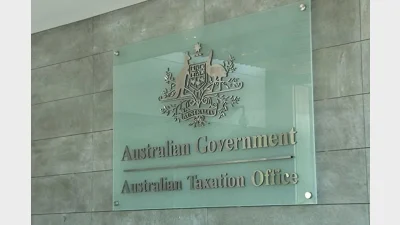(April-2003) Trustees: stand up and be counted
Trustees at the CMSF conference in Hobart last month were urged to take a more active role in corporate governance at all levels.
Australian Council of Superannuation Investors executive officer Phil Spathis told delegates that super funds had generally left it to fund managers to exercise proxy votes with very little input from trustees. "But after corporate collapses, super trustees have looked to get more involved in the decision making process," he said.
Spathis added that following corporate collapses like HIH and One.Tel, there was prevailing public opinion that Australian companies were not well-served by their boards. "There is a strong perception that directors are captive of CEOs and are rubber stamps for CEO strategies," he said.
Australian Financial Review journalist Colleen Ryan agreed, arguing that a number of directors were asleep at the wheel.
In his address, BHP Billiton chair Don Argus said corporate governance was the key to creating value and growth in companies. “The issue of corporate governance has attracted the world’s attention, undermined the confidence of investors and destroyed a fair bit of confidence,” he said.
But boardroom regular Argus came in for a grilling himself after delegates quizzed him on his track record of creating value for shareholders at the three companies of which he is either chairman or director. He was also asked whether he was too thinly stretched in his own boardroom activities.
Investment and Financial Services Association CEO Richard Gilbert added his voice to the call for more trustee involvement in corporate governance, noting that they needed to give more direction to their fund managers.
And US lawyer Bill Lerach from Milberg Weiss Bershad Hynes & Lerach, which is acting for the shareholders of Enron and WorldCom, said: "Something must be done about corporate governance — but it won't happen with legislation… You [trustees] are going to have to do it. You are the ones who will bring about change."
Lerarch also urged Australian super funds to pursue legal action if they had been defrauded by US companies. "Use US law for the recovery of your monies from the malefactors," he said. "You can sue if a US company defrauds you and US law is friendly — the rules are pro-victim and you can access the court without significant financial risk.”
Corporate governance aside, there was something for everyone at this year’s conference. Delegates dragged themselves away from Hobart’s scenic beauty and the coverage of the war in Iraq to learn more about everything from how administrators would fare over next five years to whether research actually matters.
The regulators were out in force, with Australian Prudential Regulation Authority (APRA) executive general manager for policy Charles Littrell warning that unit pricing would increasingly come under APRA’s microscope and Australian Taxation Office (ATO) Commissioner Chris Casey announcing that his organisation would be conducting a fairly heavy duty compliance campaign by auditing over 15,000 employers with unfulfilled superannuation guarantee obligations and investigating 12,000 employee notifications of non-compliance.
The ATO would also review 5000 self-managed superannuation funds (SMSFs) for breaches. “We will be running a campaign to ensure that SMSF trustees and auditors are aware of their responsibilities,” Casey said.
On the research side, the Australian Institute of Superannuation Trustees released its annual survey which showed 85 per cent of trustees believe their role is becoming more difficult, up from 74 per cent two years ago.
Host Super CEO Robert Stephens also outlined the findings of his research into what influences members’ investment choices. Among these were that communication materials used by super funds were not achieving their objectives because they were confusing. Instead, Roberts advised super funds to make their material more specific, simple and persuasive.
Tender consultant Warren Chant and SuperRatings managing director Jeff Bresnahan also warned that industry funds would have to boost their marketing efforts and spending if they wanted to compete in the corporate super market, noting that large employers still perceived industry funds as being union based.
Both questioned the ability of industry funds to handle the more complex defined benefit plans and whether they should even be targeting the larger corporate funds. —
Recommended for you
The responsible investment body is warning that a one-size-fits-all ESG framework mirroring those in the UK and the EU could do more harm than good.
Australian super funds are monitoring the US closely as President Donald Trump increasingly intervenes in corporate policy, moves that are reverberating through global markets and prompting reassessments of portfolio risk.
Industry fund HESTA has filed an appeal against an ATO decision on tax offsets from franking credits, with the Australian Retirement Trust set to file a similar claim soon.
The latest superannuation performance test results have shown improvements, but four in 10 trustee-directed products continue to exhibit “significant investment underperformance”, warns APRA.











